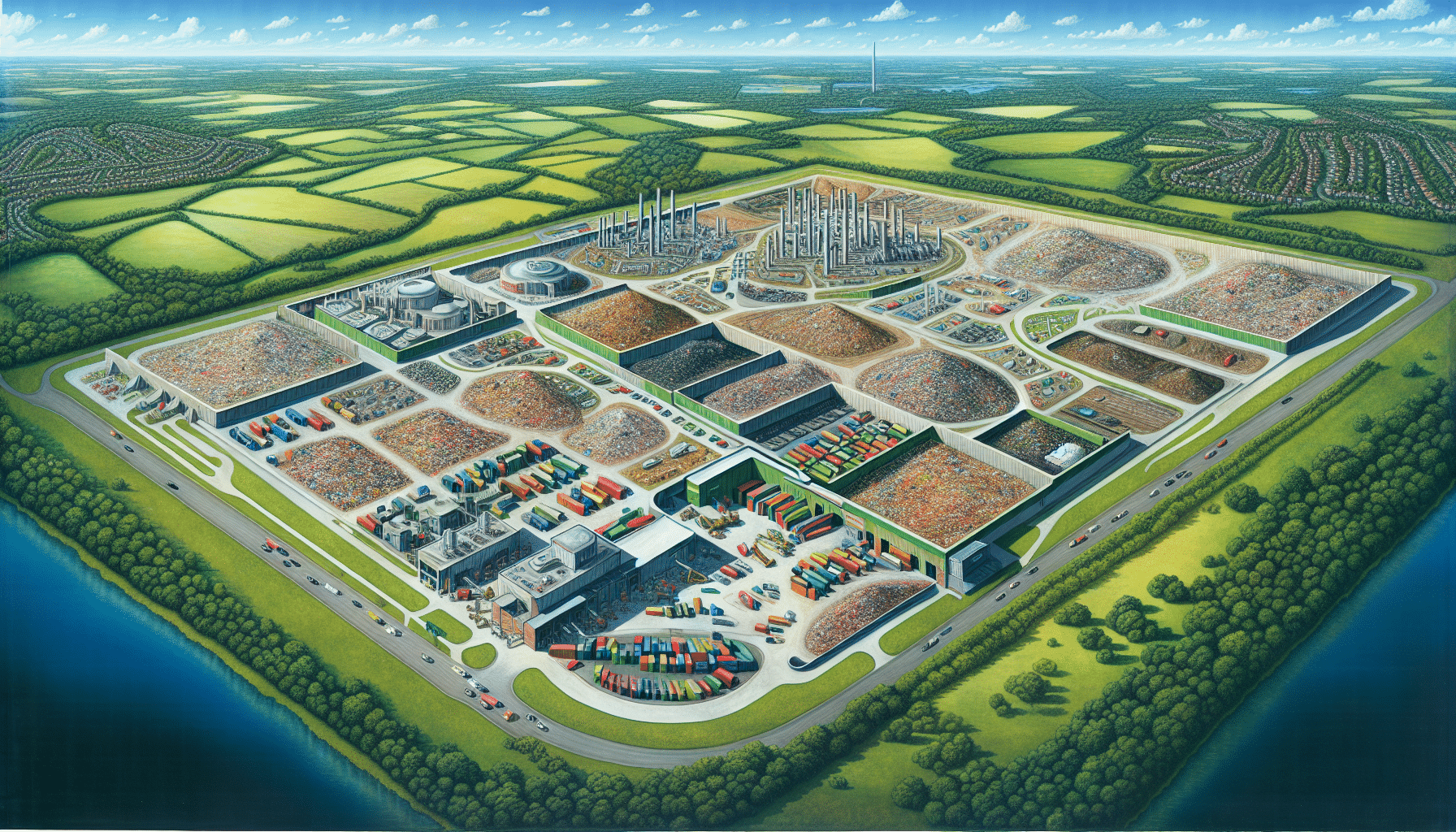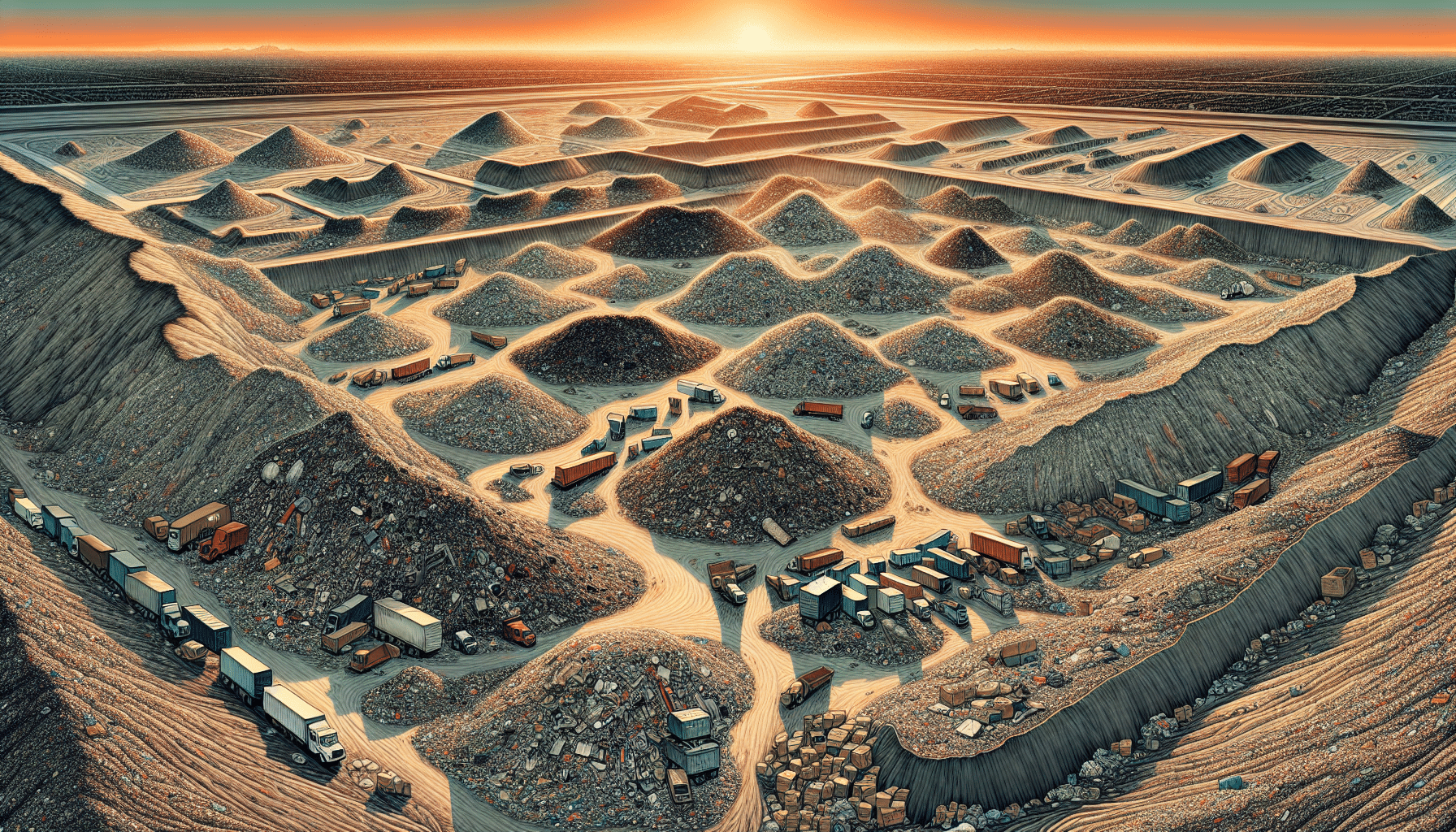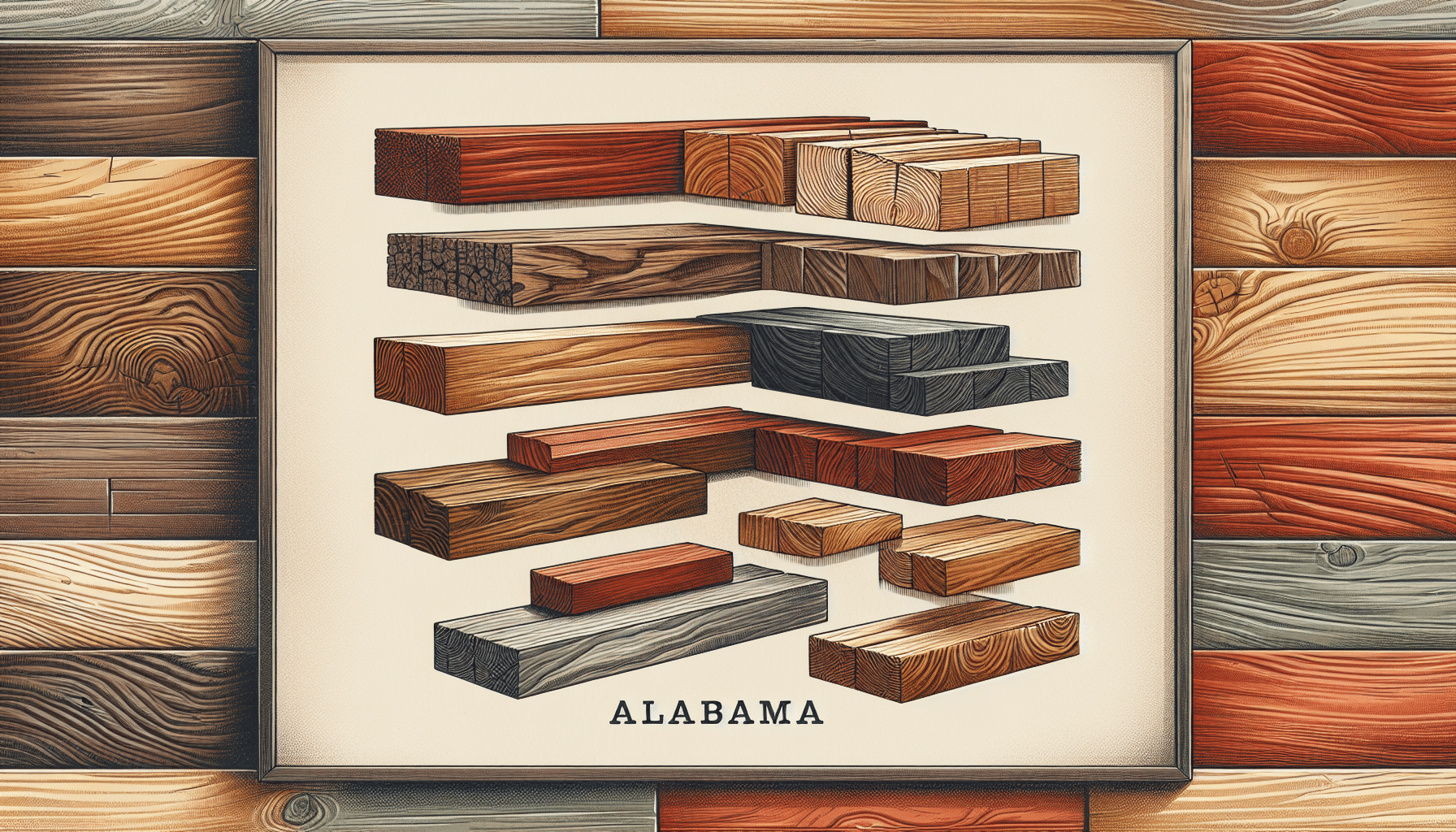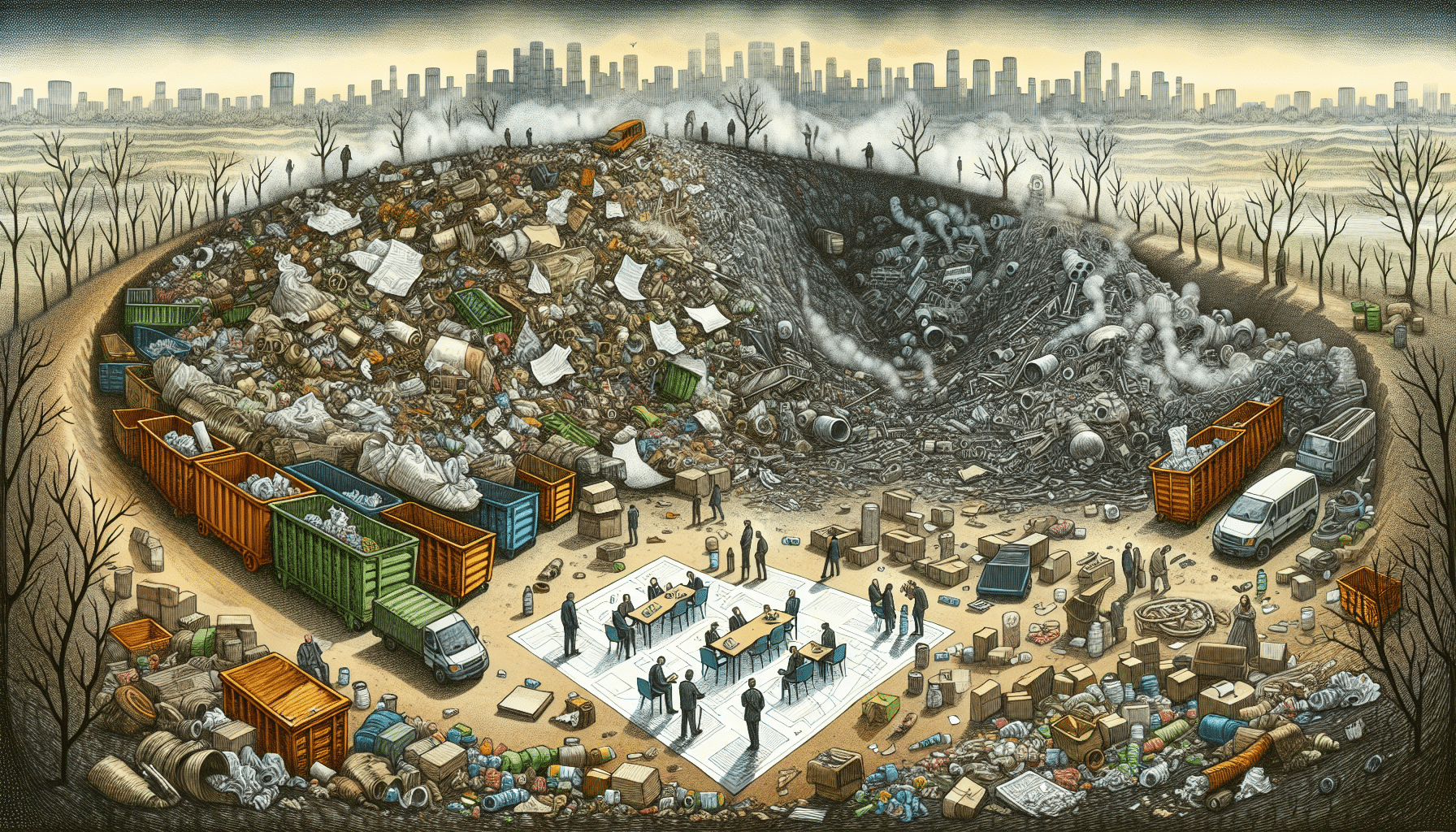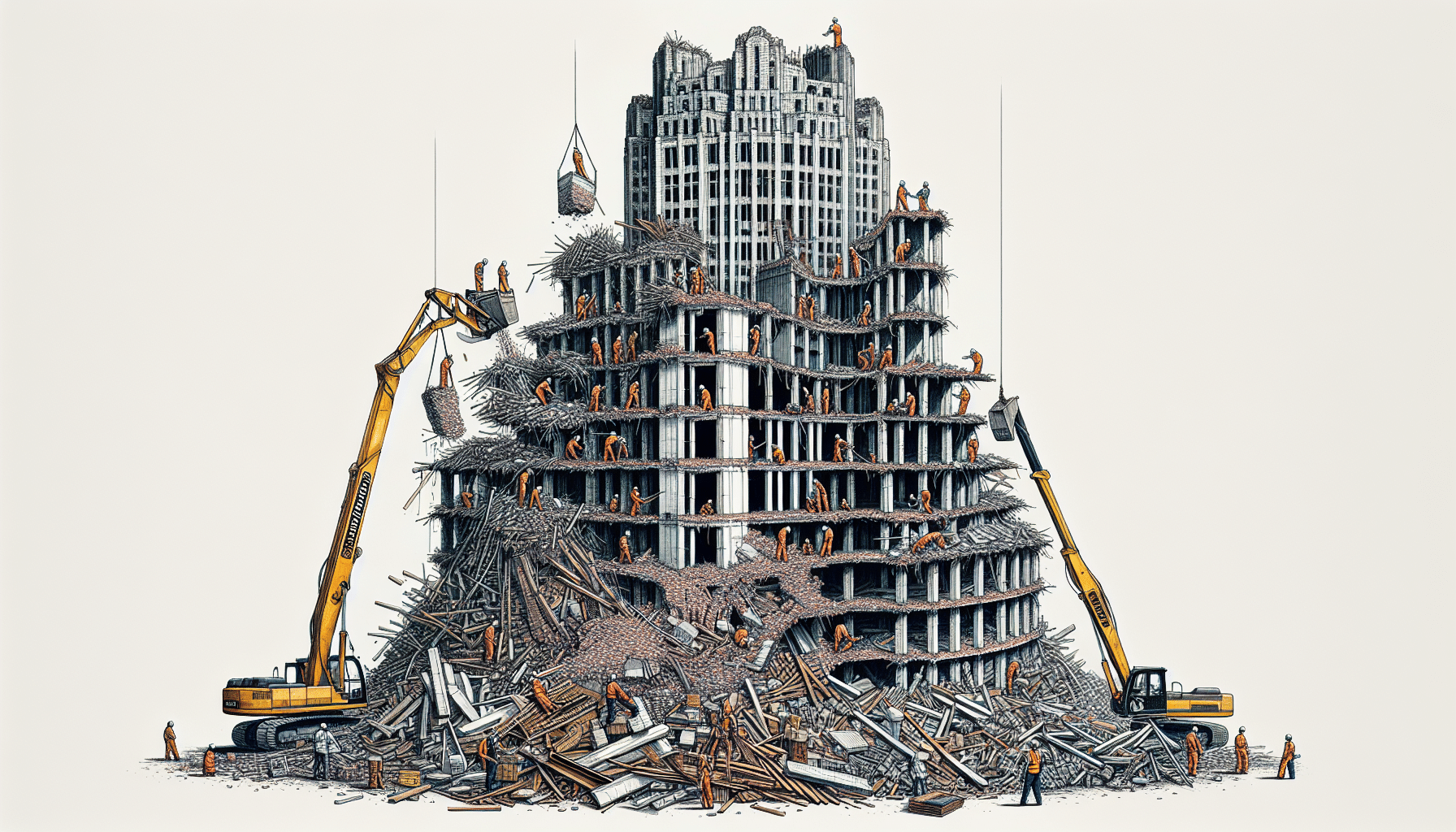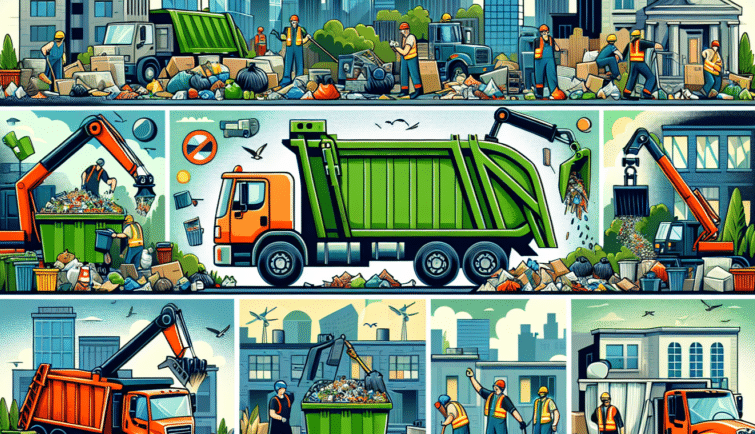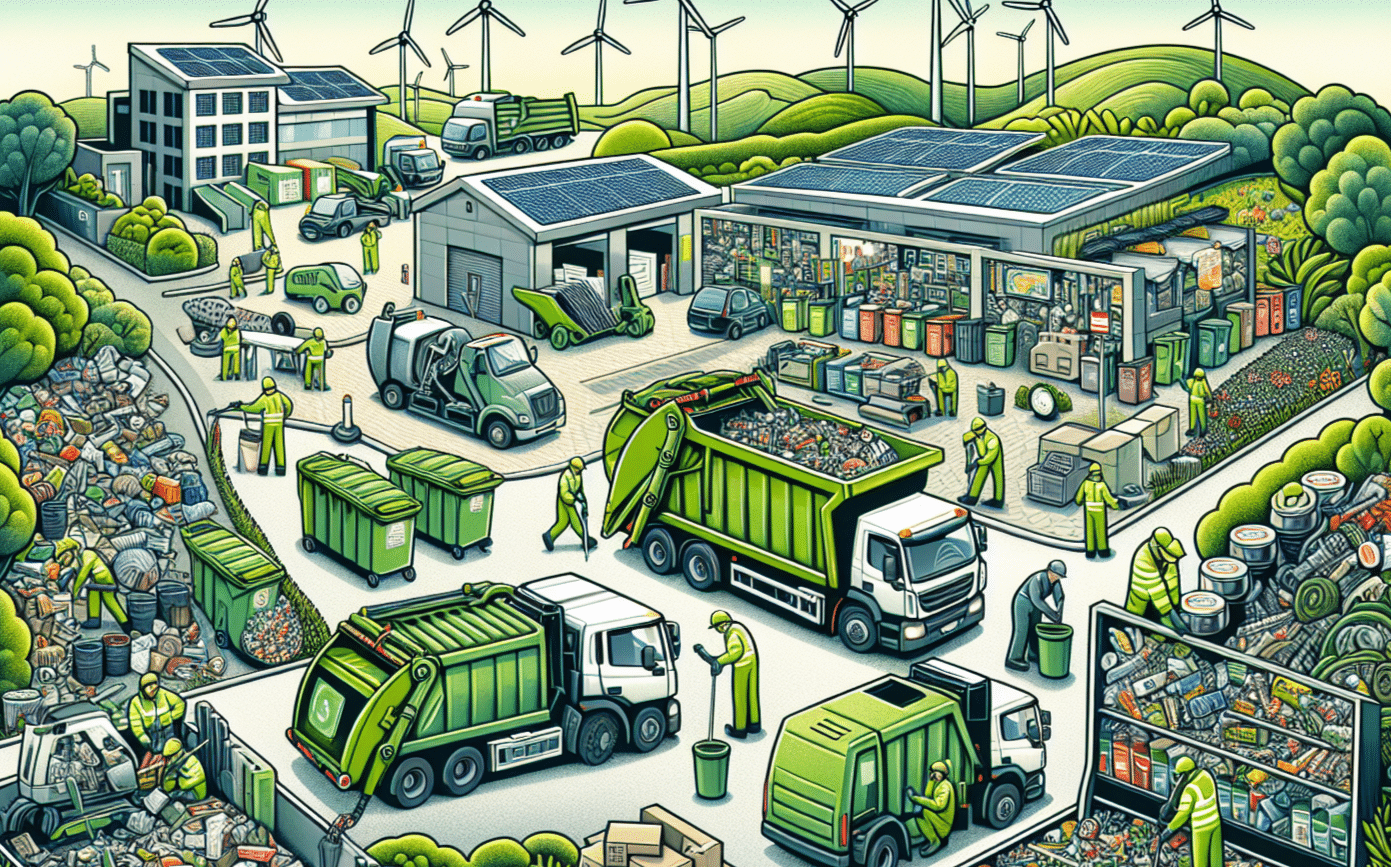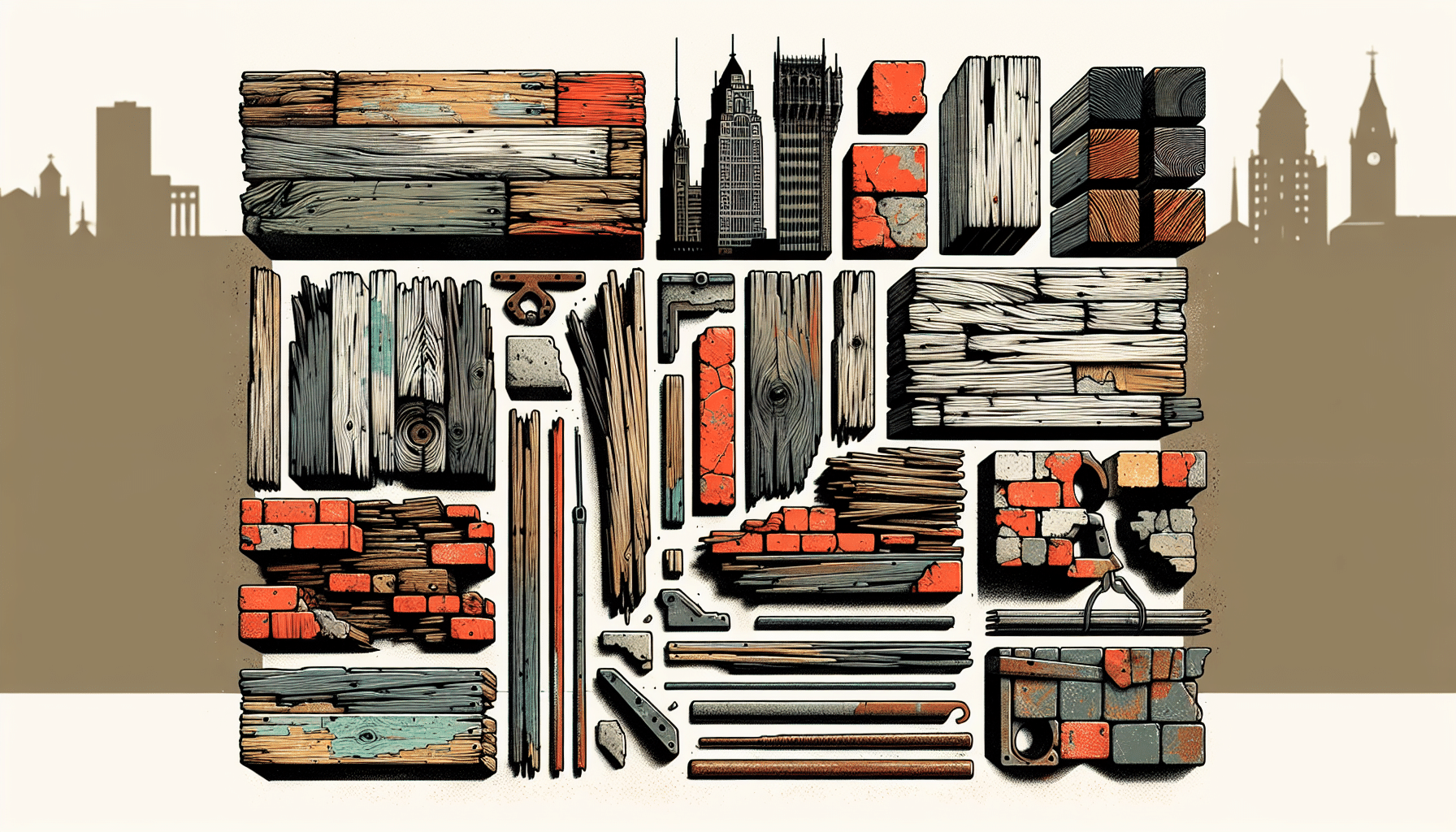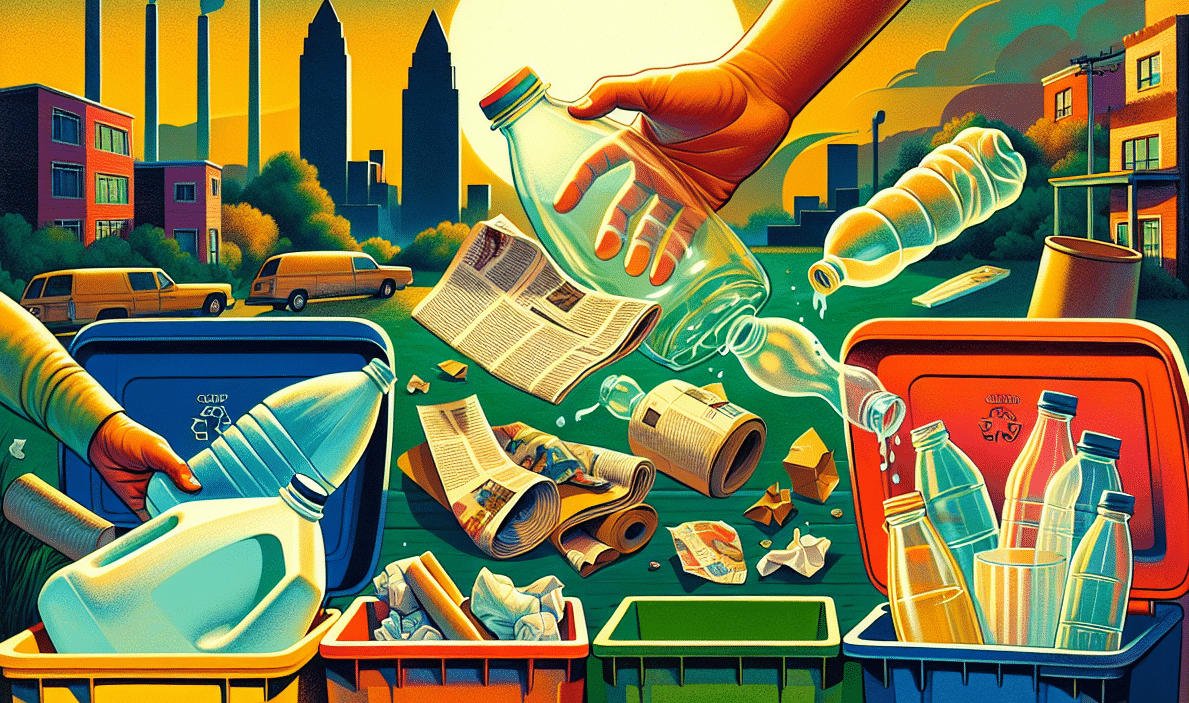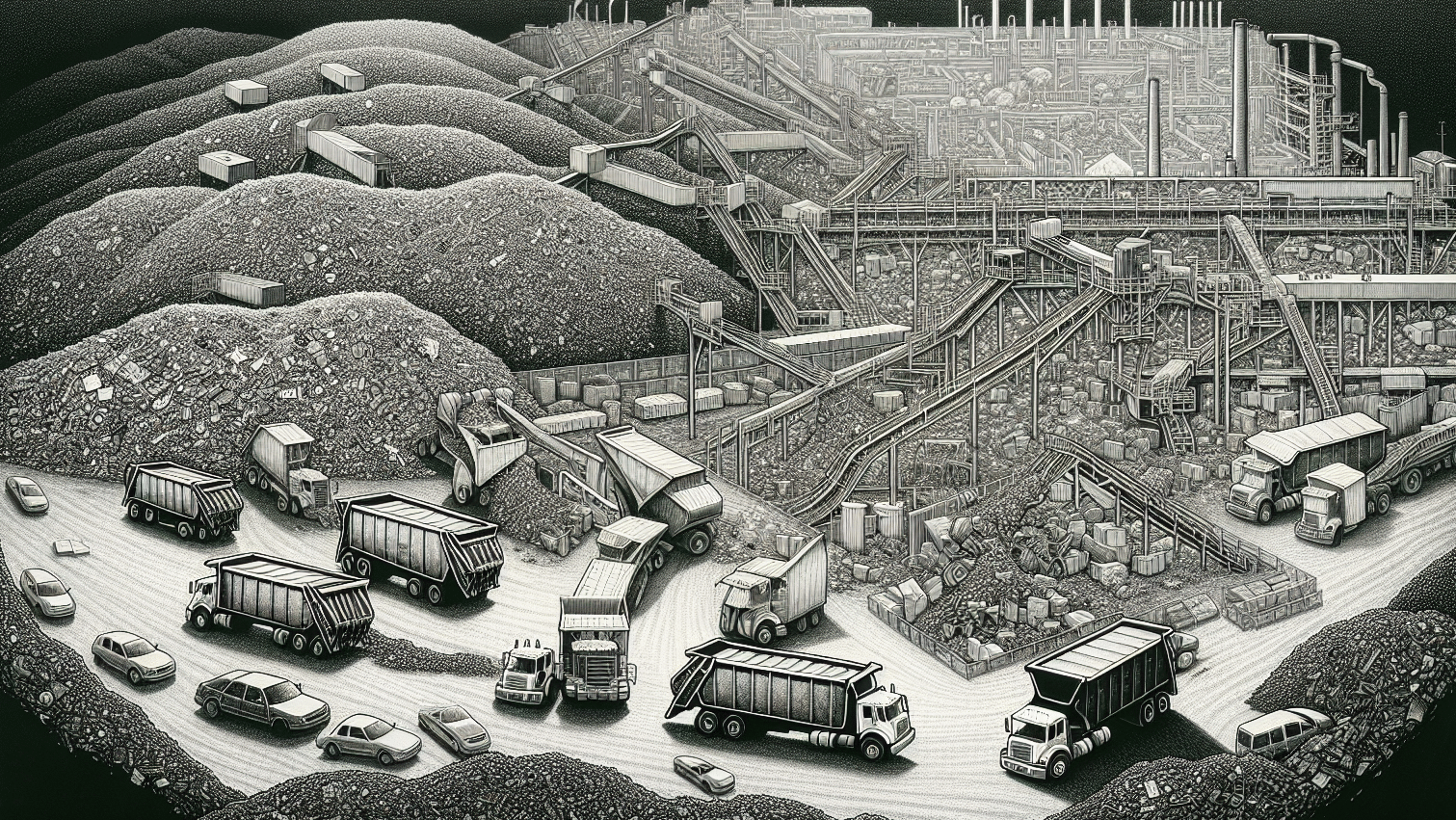Need to find the best landfills in Houston, TX, for waste disposal? This guide covers top landfill locations, their hours, types of waste accepted, and respective fees. Let’s dive into how you can manage your waste efficiently in Houston.
Key Takeaways
- Houston offers top-notch landfills for various waste disposal needs, including construction debris and bulky items.
- Understanding landfill fees, which often vary based on weight and material type, is crucial for budgeting your waste disposal.
- Houston is advancing waste management with new projects like a solid waste facility and embracing recycling technologies to boost sustainability.
Top Landfills in Houston
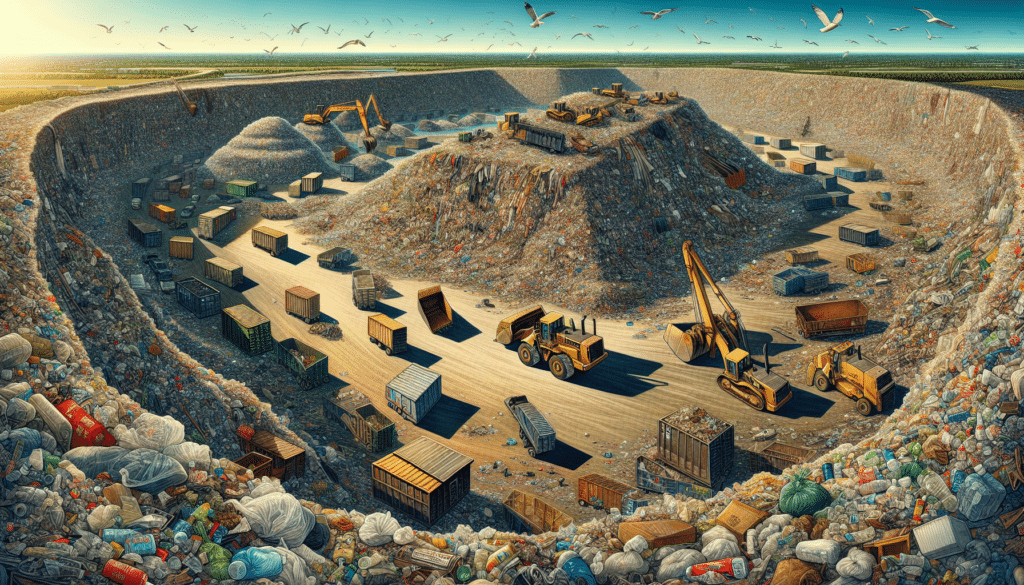
When it comes to disposing of waste, Houstonians are not short of options. With several top-notch landfills and disposal facilities, there’s a place for every unwanted item, from everyday trash to demolition waste. These disposal sites not only offer convenience but also play a crucial role in managing the city’s waste materials efficiently.
Whether it’s recycling centers that give new life to discarded items or landfills that safely contain what can’t be reused, let’s explore some of the best sites Houston has to offer for all your disposal needs.
Atascocita
Atascocita Landfill is a comprehensive center for discarding a variety of waste materials, from your bulky furniture to the remnants of last weekend’s home renovation. With its doors open from Monday to Friday, and even on Saturdays, there’s ample opportunity to haul in your load and leave with peace of mind, knowing your waste is in good hands.
Understanding Landfill Fees
Navigating the landscape of landfill fees can be difficult, but it’s a crucial piece of the waste management picture. Whether you’re a homeowner doing a spring clean or a contractor clearing out construction debris, understanding the costs associated with dropping off your waste materials at a landfill or recycling center is essential.
Types of Fees
When it comes to fees, tipping is the standard charge at landfills. These fees are typically based on the tonnage of your waste.t Be mindful of additional charges for materials that need special handling, such as asbestos or batteries, because these can cost more for specialized services.
Payment Methods
Cash and credit cards are both welcome payment methods at a majority of waste disposal sites. Some landfills even provide third-party billing options, ensuring that your disposal needs don’t disrupt your cash flow. No matter how you choose to pay, make sure to address the price upfront to avoid any surprises down the line.
Construction Debris Disposal
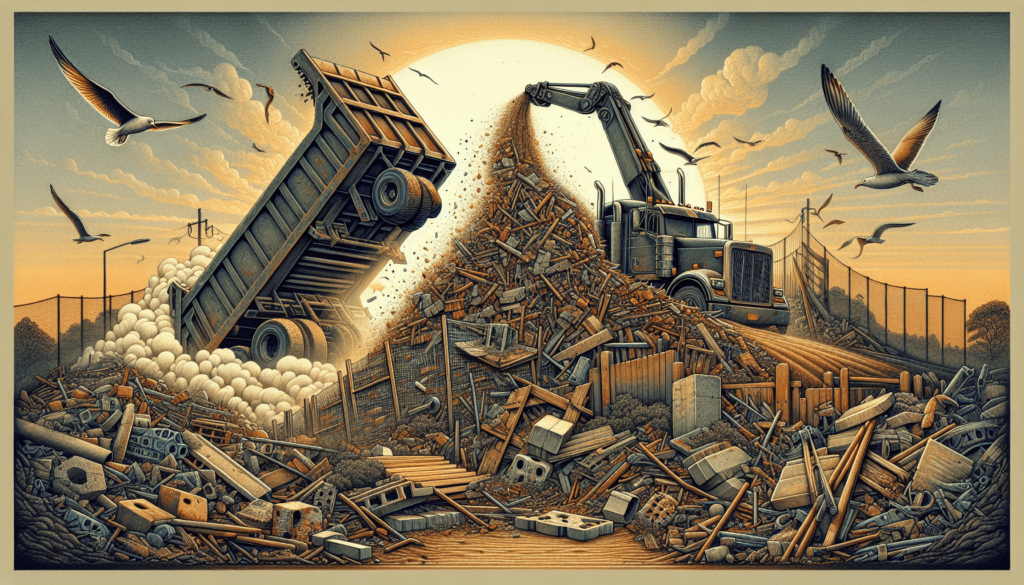
Whether you’re a contractor with a truckload of concrete or a DIY enthusiast with a pile of scrap wood, knowing where and how to dispose of your construction waste is a key aspect of responsible waste management. From the types of materials accepted to the safety protocols in place, we’ll walk you through the ins and outs of construction debris disposal so you can unload your debris with confidence.
Accepted Materials
Houston’s landfills accept a variety of construction materials, including drywall, lumber, bricks, concrete and wood beams. Hazardous materials are not accepted, so be sure to check in with your local landfill about what materials are allowed.
Safety Requirements
When you’re ready to drop off your construction debris, be sure to follow the posted safety instructions carefully, as they’re there for your protection and to keep the process running smoothly. Some locations might even assist with offloading materials, but it’s always best to come prepared.
Recycling Centers vs. Landfills
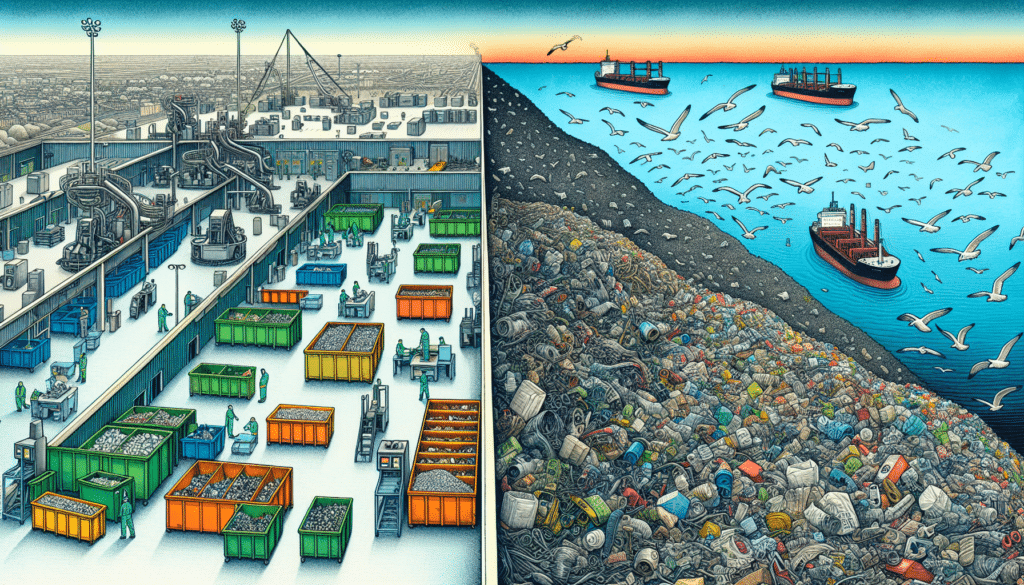
Recycling centers and landfills both play vital roles in managing our city’s waste materials, though they serve different purposes. Recycling centers serve to repurpose heavy trash and recyclable materials, while landfills are the last stop for items that cannot be reused. Understanding the strengths and limitations of each can help you make the best choice for your waste disposal needs.
Benefits of Recycling
Why recycle? Recycling helps to preserve precious resources and energy. By recycling, we ensure landfills are not overrun with excess waste while also conserving our natural resources.
Environmental Quality and Regulations
Landfills in Houston are carefully monitored ecosystems, governed by a suite of regulations designed to protect both the environment and public health. From the Texas Commission on Environmental Quality (TCEQ) to the city’s own Solid Waste Management Department, multiple layers of oversight ensure that waste disposal methods are not only effective but also environmentally sound.
Texas Commission Standards
The Texas Commission on Environmental Quality (TCEQ ) sets the standards that landfills must follow to keep Texas clean. These standards include permits that dictate how landfills can operate, from cell construction to waste transfer, ensuring that each step is done right. The TCEQ also keeps detailed records of each facility to ensure proper compliance with environmental regulations.
Sustainability Practices
Houston’s landfills demonstrate innovative sustainability practices, such as:
- Methane capture systems, which help transform waste into an opportunity to reduce greenhouse gas emissions
- Monitoring groundwater and gas levels to avoid any potential contamination
Regular inspections and the latest in environmental tech keep these facilities at the forefront of sustainability, reflecting Houston’s commitment to a greener future.
Future Developments in Waste Disposal

With new projects on the horizon and advancements in recycling technology, Houston is laying the groundwork for a more efficient and environmentally conscious approach to trash. In this section, we’ll cast a glance at what’s coming down the pipeline for waste disposal, from innovative landfill projects to cutting-edge recycling advancements that promise to transform how we think about our trash.
New Landfill Projects
One of the most buzzworthy projects is the new $13.5 million solid waste management facility breaking ground in Northeast Houston. Set to process a staggering 1,000 tons of municipal solid waste daily, this facility is a testament to Houston’s dedication to efficient waste disposal. Slated to open its doors by March 2025, it’s part of the One Clean Houston initiative, which is taking a stand against illegal dumping and setting a new standard for waste management in the city.
Advances in Recycling Technology
Along with its landfills, Houston is also embracing the future of recycling with open arms. The city’s long-range solid waste plan is laser-focused on increasing recycling rates and diverting organics away from landfills. Technologies like waste-to-energy solutions are in progress, offering a sustainable way to manage what we throw away.
Efficient Waste Management Tips

With a few lifestyle adjustments to our daily habits, we can all contribute to a more sustainable Houston. Whether you’re a business owner or a conscientious homeowner, there’s always room for improvement when it comes to handling trash. A waste audit might sound like corporate jargon, but it’s actually a simple way to track the types and quantities of waste you produce.
Reducing Waste Volume
IRecycling everyday items like paper, plastic, and metals is a proven strategy to help reduce waste volume in landfills. Composting is another method for disposing of organic waste. Additionally, going paperless helps reduce the amount of paper products that end up in landfills.
Proper Sorting
Proper sorting of recyclable, non-recyclable, and organic materials not only boosts recycling rates but also keeps landfills from reaching capacity too quickly. It’s a small step that can have a big impact on the environment and on Houston’s sustainability efforts.
Summary
From the convenience of top-notch landfills to the eco-friendly benefits of recycling centers, we’ve navigated the ins and outs of efficient and responsible waste disposal. Armed with the knowledge of landfill fees, the dos and don’ts of construction debris, and the importance of proper sorting, we can all contribute to a cleaner, greener Houston.
Frequently Asked Questions
What types of waste can I bring to a Houston landfill?
You can bring construction and demolition debris, bulky furniture, landscaping materials, and non-recyclable trash to Houston landfills, but hazardous materials are not accepted.
How can I estimate how much it will cost to dump my waste at a landfill?
You can estimate the cost of dumping your waste at a landfill by assessing the volume and type of waste you have, as landfill fees are usually based on weight or volume.
Are there any recycling centers in Houston that accept concrete?
Yes, the City of Houston Recycling Centers accept concrete for recycling.
What are some sustainability practices employed by Houston landfills?
Houston landfills employ sustainability practices such as methane capture systems and leachate collection systems to reduce emissions and prevent groundwater contamination. They also follow strict environmental regulations to protect air, water, and land quality.
What is the difference between a recycling center and a landfill?
Recycling centers process recyclable materials to reduce landfill waste, while landfills accept heavy trash and other non-recyclables.















